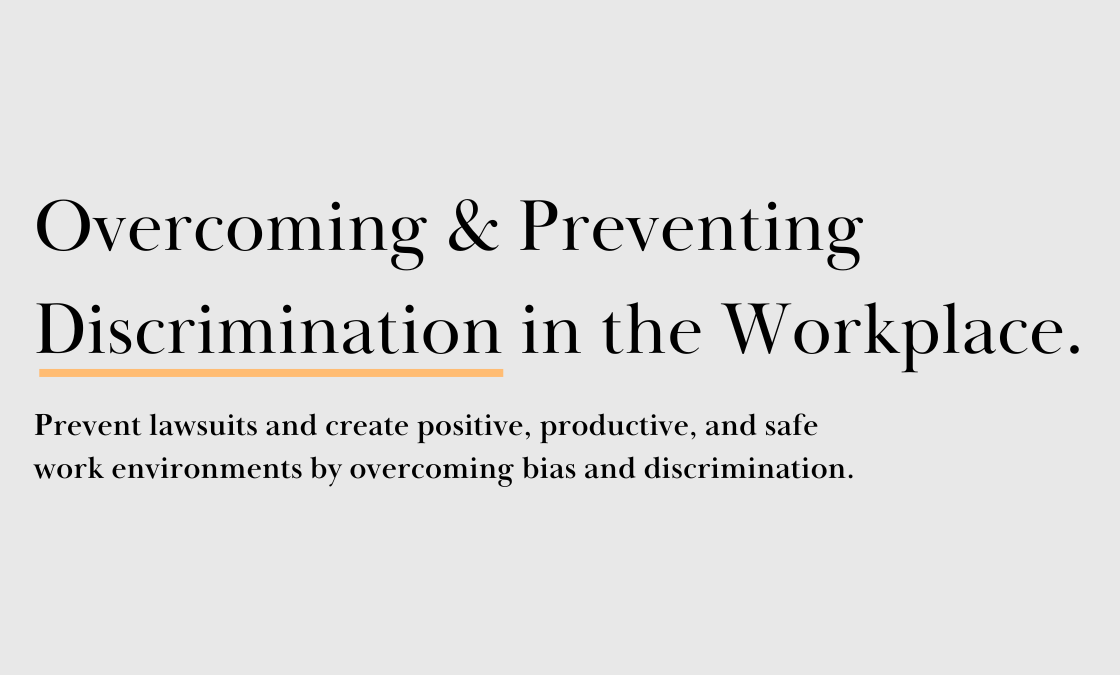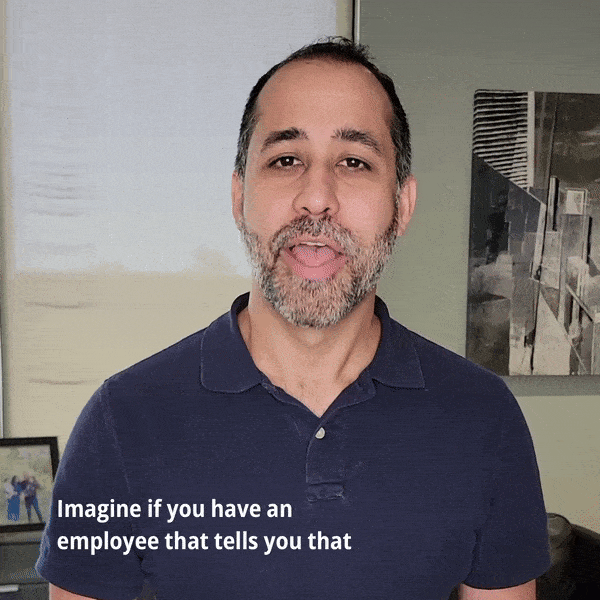Job seekers hate credit checks. They see it as invasive data collection with only remote relevance to job performance. It has also been argued that credit checks unfairly burden those who have or have had financial difficulties, including young workers with student loans, who are acting responsibly to put those troubles behind them.
Effective as of September 3, 2015 New York City will limit the extent to which employers may use consumer credit history in making employment decisions. A number of cities and states have enacted similar laws. In 2013, Senator Elizabeth Warren introduced federal legislation that would have prohibited the use of credit information in hiring. Although unsuccessful, it is clearly representative of a trend toward limiting pre-employment credit inquiries.
Nonetheless, nearly half of the employers included in a recent survey by the Society of Human Resource Managers reported that they use credit background checks in making hiring decisions.
Are credit checks a useful screening tool? And, if so, how and when can prospective employers use them?
Why Use Consumer Credit History?
At the outset, of course, it is important to acknowledge that a bad hire can be an extremely expensive mistake. At a startup, the cost of replacing the wrong employee can easily run between $25,000 and $50,000, on top of whatever damage is done to morale, productivity and consumer satisfaction.
Employers argue that they need to know all they can about applicants to avoid this problem. Credit histories are seen as a way to predict whether employees are likely to be dependable and whether they may be likely to embezzle funds or steal merchandise.
Employee theft is far more prevalent than many employers acknowledge and costs many organizations an average of 5 percent of annual revenue.
The issue is whether information about payment history contained in a credit report has sufficient correlation to either job performance or the more pernicious problem of workplace theft to be useful.
The answer depends on who you ask.
Dueling Experts
A 2014 PricewaterhouseCoopers survey found nearly a third of Gen X and Gen Y workers report that personal finance issues have been a distraction at work. The report does suggest that there is a relationship between debt and lost productivity, if nothing else.
A 2012 study published in The Psychologist-Manager Journal found no correlation between information extracted from credit reports and subsequent performance appraisals or termination decisions.
Tracy Coenen, a forensic accountant and the author of Essentials of Corporate Fraud, advocates examining the financial situation of a prospective employee to prevent embezzlement, while acknowledging that academic research on the correlation between negative credit information and workplace theft reports mixed results.
An oft-cited position statement by liberal think-tank Demos, on the other hand, finds substantial evidence that employment credit checks constitute an illegitimate barrier to employment.
Federal Law
The Fair Credit Reporting Act requires that prospective employers:
- obtain the employee or applicant’s prior written authorization to obtain a credit report and
- provide the applicant or employee a copy of the credit report and a written description of his or her rights under the FCRA before any adverse action is taken (such as not hiring an individual as a result of the report.)
Of course, since employers do not generally have to tell an applicant why he or she was not hired, the second requirement often goes unobserved.
Title VII of the Civil Rights Act of 1964 prohibits discrimination in employment on the basis of race, ethnicity, gender and a number of other factors. The Equal Opportunity Commission has sued employers that conduct credit checks where the commission believes that those checks have a disparate impact on protected groups of employees.
Unless that inquiry can be shown to be essential to the job in question, the EEOC discourages pre-employment credit checks because they tend to impact more adversely on minorities and women.
State and local laws impose restrictions in addition to federal requirements.
California
As of January 1, 2012, California law prohibits employers or prospective employers, with the exception of certain financial institutions, from obtaining a credit report, unless the job is:
- a position in the California Department of Justice;
- a managerial position;
- a sworn peace officer or other law enforcement position;
- a position for which credit information is required by law;
- a position that involves regular access to personal information other than credit card transactions in a retail establishment;
- a position in which the person would be a named signatory on the employer’s bank or other account or otherwise to transfer money or enter into financial contracts on the employer’s behalf;
- a position that involves access to confidential or proprietary information; or
- a position that involves regular access to S10.000 or more in cash.
The law also requires written notice to the person for whom the credit report is being obtained.
New York City and Beyond
New York City’s law will similarly bans most employers in the city from using credit reports, scores or other information requested directly from the applicant regarding bankruptcies, judgments, liens, number of credit accounts and late payments.
Like California’s statute, there are exceptions for:
- positions with signatory authority over third party funds or assets valued at $10,000 or more, or authority to enter into financial agreements valued at $10,000 or more on behalf of the employer;
- positions that allow an employee to modify digital security systems designed to prevent the unauthorized use of the employer’s or client’s networks or databases;
- non-clerical jobs with regular access to trade secrets or national security/intelligence information;
- employers required to consider credit history for employment purposes under state or federal law/regulations or by a self-regulatory organization under the Securities Exchange Act of 1934;
- various public safety positions, including police officers, peace officers, Department of Investigation personnel, and other individuals subject to a background investigation by the Department;
- positions requiring bonding under federal, state, or city law, including certain positions in finance; and
- positions requiring security clearance under federal or any state law.
In Illinois, employers may not inquire about an individual’s credit history or base hiring, promotion, and other employment decisions on an employee or job applicant’s credit history. Illinois employers may use credit history only when a “bona fide occupational requirement” is established. In order to meet this requirement one of the following must apply:
- State or federal law requires bonding or other security covering an individual holding the position;
- The duties of the position include custody of or unsupervised access to cash or marketable assets valued at $2,500 or more;
- The duties of the position include signatory power over business assets of $100 or more per transaction;
- The position is a managerial position which involves setting the direction or control of the business;
- The position involves access to personal or confidential information, financial information, trade secrets, or State or national security information;
- The position meets criteria in administrative rules, if any, that the US Department of Labor or the Illinois Department of Labor has promulgated to establish the circumstances in which a credit history is a bona fide occupational requirement; or
- The employee’s or applicant’s credit history is otherwise required by or exempt under federal or State law.
Chicago adopted its own city ordinance in 2012 that prohibits employers from using credit history in employment decisions, but exempts certain industries and occupations where handling money or access to personal or confidential information is a requirement of the position.
At least eight other states have also adopted restrictions on the situations in which private employers may consider credit history information, and bills that would do the same are a fairly regular feature in many state legislatures.
What Should Employers Do?
If your business uses credit history as part of the background screening process for job applicants or when evaluating current employees for promotion, it may well be time to re-evaluate that practice. The value of the information obtained for purposes of predicting future job performance is debatable and the risk that the practice may violate federal, state or local law is growing.
If you believe, nonetheless, that the credit information is valuable, your business should periodically review hiring procedures to ensure that they comply with the disclosure requirements of FCRA and are not inadvertently producing a result that has a disparate impact on racial or ethnic minorities or women.
In addition, you should be alert to changes in state or municipal law that may now ban a practice once considered routine. Most of the new legislation contains exceptions for managers or employees who have access to sensitive information or financial accounts. Your business should be prepared to articulate a bona fide reason why such information is relevant to the job in question.


![Unraveling the Workforce: Navigating the Aftermath of Mass Layoffs [e322]](https://www.pashalaw.com/wp-content/uploads/2023/07/Untitled-design-23-1024x723.png)
![Return to the Office vs. Remote: What Can Employers Legally Enforce? [e321]](https://www.pashalaw.com/wp-content/uploads/2023/01/Pasha_LSSB_321_banner-1024x723.jpg)


![California v. Texas: Which is Better for Business? [313]](https://www.pashalaw.com/wp-content/uploads/2021/07/Pasha_LSSB_CaliforniaVSTexas-1024x723.jpg)




![Employers vs. Employees: When Are Employment Restrictions Fair? [e318]](https://www.pashalaw.com/wp-content/uploads/2022/05/Pasha_LSSB_EmployeesVsEmployers_banner-1-1024x723.jpg)






![Law in the Digital Age: Exploring the Legal Intricacies of Artificial Intelligence [e323]](https://www.pashalaw.com/wp-content/uploads/2023/11/WhatsApp-Image-2023-11-21-at-13.24.49_4a326c9e-300x212.jpg)
![Unraveling the Workforce: Navigating the Aftermath of Mass Layoffs [e322]](https://www.pashalaw.com/wp-content/uploads/2023/07/Untitled-design-23-300x212.png)
![Return to the Office vs. Remote: What Can Employers Legally Enforce? [e321]](https://www.pashalaw.com/wp-content/uploads/2023/01/Pasha_LSSB_321_banner-300x212.jpg)
![Explaining the Hans Niemann Chess Lawsuit v. Magnus Carlsen [e320]](https://www.pashalaw.com/wp-content/uploads/2022/10/LAWYER-EXPLAINS-7-300x169.png)
![California v. Texas: Which is Better for Business? [313]](https://www.pashalaw.com/wp-content/uploads/2021/07/Pasha_LSSB_CaliforniaVSTexas-300x212.jpg)
![Buyers vs. Sellers: Negotiating Mergers & Acquisitions [e319]](https://www.pashalaw.com/wp-content/uploads/2022/06/Pasha_LSSB_BuyersVsSellers_banner-300x212.jpg)
![Employers vs. Employees: When Are Employment Restrictions Fair? [e318]](https://www.pashalaw.com/wp-content/uploads/2022/05/Pasha_LSSB_EmployeesVsEmployers_banner-1-300x212.jpg)
![Vaccine Mandates Supreme Court Rulings [E317]](https://www.pashalaw.com/wp-content/uploads/2022/02/WhatsApp-Image-2022-02-11-at-4.10.32-PM-300x212.jpeg)
![Business of Healthcare [e316]](https://www.pashalaw.com/wp-content/uploads/2021/11/Pasha_LSSB_BusinessofHealthcare_banner-300x212.jpg)
![Social Media and the Law [e315]](https://www.pashalaw.com/wp-content/uploads/2021/10/WhatsApp-Image-2021-10-06-at-1.43.08-PM-300x212.jpeg)
![Defining NDA Boundaries: When does it go too far? [e314]](https://www.pashalaw.com/wp-content/uploads/2021/09/Pasha_LSSB_NDA_WordPress-2-300x212.jpg)
![More Than a Mistake: Business Blunders to Avoid [312] Top Five Business Blunders](https://www.pashalaw.com/wp-content/uploads/2021/06/Pasha_LSSB_Blunders_WP-1-300x212.jpg)
![Is There a Right Way to Fire an Employee? We Ask the Experts [311]](https://www.pashalaw.com/wp-content/uploads/2021/02/Pasha_LSSB_FireAnEmployee_Website-300x200.jpg)
![The New Frontier: Navigating Business Law During a Pandemic [310]](https://www.pashalaw.com/wp-content/uploads/2020/12/Pasha_LSSB_Epidsode308_Covid_Web-1-300x200.jpg)
![Wrap Up | Behind the Buy [8/8] [309]](https://www.pashalaw.com/wp-content/uploads/2020/11/Pasha_BehindTheBuy_Episode8-300x200.jpg)
![Is it all over? | Behind the Buy [7/8] [308]](https://www.pashalaw.com/wp-content/uploads/2020/09/iStock-1153248856-overlay-scaled-300x200.jpg)
![Fight for Your [Trademark] Rights | Behind the Buy [6/8] [307]](https://www.pashalaw.com/wp-content/uploads/2020/07/Fight-for-your-trademark-right-300x200.jpg)
![They Let It Slip | Behind the Buy [5/8] [306]](https://www.pashalaw.com/wp-content/uploads/2020/06/Behind-the-buy-they-let-it-slip-300x200.jpg)
![Mo’ Investigation Mo’ Problems | Behind the Buy [4/8] [305]](https://www.pashalaw.com/wp-content/uploads/2020/05/interrobang-1-scaled-300x200.jpg)
![Broker or Joker | Behind the Buy [3/8] [304] Behind the buy - Broker or Joker](https://www.pashalaw.com/wp-content/uploads/2020/04/Joker-or-Broker-1-300x185.jpg)
![Intentions Are Nothing Without a Signature | Behind the Buy [2/8] [303]](https://www.pashalaw.com/wp-content/uploads/2020/04/intentions-are-nothing-without-a-signature-300x185.jpg)
![From First Steps to Final Signatures | Behind the Buy [1/8] [302]](https://www.pashalaw.com/wp-content/uploads/2020/04/first-steps-to-final-signatures-300x185.jpg)
![The Dark-side of GrubHub’s (and others’) Relationship with Restaurants [e301]](https://www.pashalaw.com/wp-content/uploads/2015/04/When-Competition-Goes-Too-Far-Ice-Cream-Truck-Edition-300x201.jpg)
![Ultimate Legal Breakdown of Internet Law & the Subscription Business Model [e300]](https://www.pashalaw.com/wp-content/uploads/2019/05/Ultimate-Legal-Breakdown-of-Internet-Law-the-Subscription-Business-Model-300x196.jpg)
![Why the Business Buying Process is Like a Wedding?: A Legal Guide [e299]](https://www.pashalaw.com/wp-content/uploads/2019/03/futura-300x169.jpg)
![Will Crowdfunding and General Solicitation Change How Companies Raise Capital? [e298]](https://www.pashalaw.com/wp-content/uploads/2018/11/Will-Crowdfunding-and-General-Solicitation-Change-How-Companies-Raise-Capital-300x159.jpg)
![Pirates, Pilots, and Passwords: Flight Sim Labs Navigates Legal Issues (w/ Marc Hoag as Guest) [e297]](https://www.pashalaw.com/wp-content/uploads/2018/07/flight-sim-labs-300x159.jpg)
![Facebook, Zuckerberg, and the Data Privacy Dilemma [e296] User data, data breach photo by Pete Souza)](https://www.pashalaw.com/wp-content/uploads/2018/04/data-300x159.jpg)
![What To Do When Your Business Is Raided By ICE [e295] I.C.E Raids business](https://www.pashalaw.com/wp-content/uploads/2018/02/ice-cover-300x159.jpg)
![General Contractors & Subcontractors in California – What you need to know [e294]](https://www.pashalaw.com/wp-content/uploads/2018/01/iStock-666960952-300x200.jpg)
![Mattress Giants v. Sleepoplis: The War On Getting You To Bed [e293]](https://www.pashalaw.com/wp-content/uploads/2017/12/sleepopolis-300x159.jpg)
![The Harassment Watershed [e292]](https://www.pashalaw.com/wp-content/uploads/2017/12/me-2-300x219.jpg)
![Investing and Immigrating to the United States: The EB-5 Green Card [e291]](https://www.pashalaw.com/wp-content/uploads/2012/12/eb-5-investment-visa-program-300x159.jpg)
![Responding to a Government Requests (Inquiries, Warrants, etc.) [e290] How to respond to government requests, inquiries, warrants and investigation](https://www.pashalaw.com/wp-content/uploads/2017/10/iStock_57303576_LARGE-300x200.jpg)
![Ultimate Legal Breakdown: Employee Dress Codes [e289]](https://www.pashalaw.com/wp-content/uploads/2017/08/Ultimate-Legal-Breakdown-Template-1-300x159.jpg)
![Ultimate Legal Breakdown: Negative Online Reviews [e288]](https://www.pashalaw.com/wp-content/uploads/2017/06/Ultimate-Legal-Breakdown-Online-Reviews-1-300x159.jpg)
![Ultimate Legal Breakdown: Social Media Marketing [e287]](https://www.pashalaw.com/wp-content/uploads/2017/06/ultimate-legal-breakdown-social-media-marketing-blur-300x159.jpg)
![Ultimate Legal Breakdown: Subscription Box Businesses [e286]](https://www.pashalaw.com/wp-content/uploads/2017/03/ultimate-legal-breakdown-subscription-box-services-pasha-law-2-300x159.jpg)
![Can Companies Protect Against Foreseeable Misuse of Apps [e285]](https://www.pashalaw.com/wp-content/uploads/2017/01/iStock-505291242-300x176.jpg)
![When Using Celebrity Deaths for Brand Promotion Crosses the Line [e284]](https://www.pashalaw.com/wp-content/uploads/2017/01/celbrity-300x159.png)
![Are Employers Liable When Employees Are Accused of Racism? [e283] Racist Employee](https://www.pashalaw.com/wp-content/uploads/2016/12/Are-employers-liable-when-an-employees-are-accused-of-racism-300x159.jpg)
![How Businesses Should Handle Unpaid Bills from Clients [e282] What to do when a client won't pay.](https://www.pashalaw.com/wp-content/uploads/2016/12/How-Businesses-Should-Handle-Unpaid-Bills-to-Clients-300x159.png)
![Can Employers Implement English Only Policies Without Discriminating? [e281]](https://www.pashalaw.com/wp-content/uploads/2016/11/Can-Employers-Impliment-English-Only-Policies-Without-Discriminating-300x159.jpg)
![Why You May No Longer See Actors’ Ages on Their IMDB Page [e280]](https://www.pashalaw.com/wp-content/uploads/2016/10/IMDB-AGE2-300x159.jpg)
![Airbnb’s Discrimination Problem and How Businesses Can Relate [e279]](https://www.pashalaw.com/wp-content/uploads/2016/09/airbnb-300x159.jpg)
![What To Do When Your Amazon Account Gets Suspended [e278]](https://www.pashalaw.com/wp-content/uploads/2016/09/What-To-Do-When-Your-Amazon-Account-Gets-Suspended-1-300x200.jpg)
![How Independent Artists Reacted to Fashion Mogul Zara’s Alleged Infringement [e277]](https://www.pashalaw.com/wp-content/uploads/2016/08/How-Independent-Artists-Reacted-to-Fashion-Mogul-Zaras-Alleged-Infringement--300x159.jpg)
![Can Brave’s Ad Replacing Software Defeat Newspapers and Copyright Law? [e276]](https://www.pashalaw.com/wp-content/uploads/2016/08/Can-Braves-Ad-Replacing-Software-Defeat-Newspapers-and-Copyright-Law-300x159.jpg)
![Why The Roger Ailes Sexual Harassment Lawsuit Is Far From Normal [e275]](https://www.pashalaw.com/wp-content/uploads/2016/07/WHY-THE-ROGER-AILES-SEXUAL-HARASSMENT-LAWSUIT-IS-FAR-FROM-NORMAL-300x159.jpeg)
![How Starbucks Turned Coveted Employer to Employee Complaints [e274]](https://www.pashalaw.com/wp-content/uploads/2016/07/iStock_54169990_LARGE-300x210.jpg)
